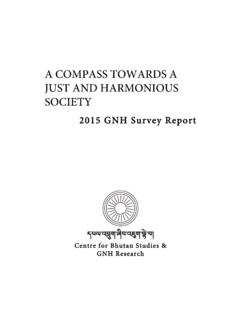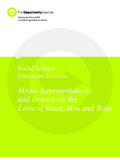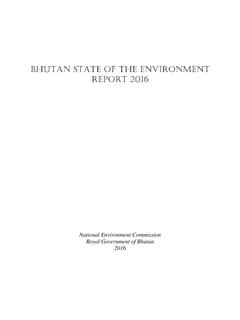Transcription of Daniel Chisholm - World Health Organization
1 This report was written by Seth Mnookin (MIT ). It is the product of almost two years of activities of a Working Group chaired and directed by Arthur Kleinman (Harvard University Asia Center). The Working Group consists of Timothy Evans ( World Bank Group), Patricio Marquez ( World Bank Group), Shekhar Saxena ( World Health Organization ), Daniel Chisholm ( World Health Organization ), Anne Becker (Harvard Medical School), Pamela Collins ( National Institute of Mental Health ), Mary de Silva (Wellcome Trust), Pablo Farias (Harvard Medical School), Roberto Iunes ( World Bank Group), Akiko Ito (United Nations Department of Economic and Social Affairs), Dean Jamison (University of Washington), Yoshiharu Kim (National Institute of Mental Health , Japan), Judith Klein (Open Society Foundations), Vikram Patel (London School of Hygiene and Tropical Medicine), and Benedetto Saraceno (NOVA University of Lisbon).
2 In addition to members of the Working Group, it includes research by Pim Cuipers (Vrije Universiteit Amsterdam), Amanda Glassman (Center for Global Development), Bruce Rasmussen (Victoria University), Peter Sheehan (Victoria University), Filip Smit (Vrije Universiteit Amsterdam), Kim Sweeny (Victoria University), Leslie B. Tarver (Massachusetts General Hospital), and Daniel Vigo (Harvard University). The Working Group acknowledges the contributions of Mary Dethavong, Annikki Herranen-Tabibi, and members of the staffs of the World Bank Group and the World Health Organization . It also would like to thank The National Academies of Sciences, Engineering, and Medicine s Health and Medicine Division for its support of a meeting of the Working Group on April 20, paper was first presented during the keynote panel of a World Bank Group/ World Health Organization high-level meeting on making mental Health a global development priority.
3 The two-day event was held on April 13 and 14, 2016, as part of the World Bank Group/International Monetary Fund spring meetings in Washington, meeting would not have been possible without the sponsorship of: World Health Organization , Harvard University Asia Center, National Institute of Mental Health ( ), Grand Challenges Canada, Wellcome Trust, Nippon Foundation, Rockefeller Foundation, Funda o Calouste Gulbenkian, Open Society Foundations, Mental Health Innovations Network, Kennedy Forum, , iFred, Secretariat for the UN Convention on the Rights of Persons with Disabilities, Plan International USA, International Medical Corps, Strongheart Group, African Union Commission, Global Health Council, World Economic Forum, Department of State ( )/APEC Mental Health Initiative, National Institute of Mental Health (Japan), Fundaci n Santa Fe de Bogota, Carter Center, European Commission Directorate General for Health and Food Safety, Fundaci n Once, Fracarita International, Nature, and George Washington University Milken Institute School of Public organizers of the event also express their appreciation for the support provided by the Office of the United States executive Director for the World Bank findings, interpretations, and conclusions expressed in this work do not necessarily reflect the views of The World Bank, its Board of executive Directors, or the governments they members of the World Health Organization who contributed to this report are responsible for the views expressed in this publication, which do not necessarily represent the decisions, policy, or views of the World Health 2016 Seth Mnookin, World Bank Group.
4 And World Health OF THE SHADOWSE xecutive summary Mental disorders impose an enormous burden on society, accounting for almost one in three years lived with disability globally. In addition to their Health impact, mental disorders cause a significant economic burden due to lost economic output and the link between mental disorders and costly, potentially fatal conditions including cancer, cardiovascular disease, diabetes, HIV, and obesity. 80% of the people likely to experience an episode of a mental disorder in their lifetime come from low- and middle-income countries. Two of the most common forms of mental disorders, anxiety and depression, are prevalent, disabling, and respond to a range of treatments that are safe and effective. Yet, owing to stigma and inadequate funding, these disorders are not being treated in most primary care and community settings.
5 Confronting mental disorders will require new sources of funding to bridge current resource gaps. Investment from a combination of national governments and international development partners could bridge these gaps and result in cost-effective mental Health interventions. This funding will provide a strong return on investment, with scale-up leading to good returns in restored productivity as well as improved Mental Health a Global Development Priority3 OUT OF THE SHADOWS4 IntroductionIt is no secret that mental disorders cause untold human misery: Studies estimate that at least 10% of the World s population is affected1 and that 20% of children and adolescents suffer from some type of mental In fact, mental disorders account for 30% of non-fatal disease burden worldwide (Figure 1) and 10% of overall disease burden, including death and Suicide, which is frequently caused by mental disorders, also exacts an enormous toll on society.
6 In India, it has overtaken complications from pregnancy and childbirth as the leading cause of death among women aged 15 to It is also well known that anxiety and depression, two of the most common mental disorders, respond well to a variety of treatments. If we accept that we have an obligation to alleviate death and suffering when it is within our power to do so, a strong argument can be made that adequate mental Health treatment should be considered a fundamental human right and a moral imperative. Unfortunately, the realities of the World mean that there is not adequate funding for every intervention that would improve our Health and happiness. As a result, when looked at within a framework of resource allocation, the case for robust investment in mental Health treatment may initially seem tenuous. This is only true, however, if one ignores the many ripple effects created by mental disorders.
7 This discussion will show that, in addition to the moral case for treating mental disorders, there is also a strong economic argument to be made. Indeed, careful analysis shows that treating anxiety and depression is an affordable and cost effective way to promote well-being and prosperity in a given population and that failure to treat them can be a significant contributor to impoverishment at the household level and to diminished economic growth and social well-being at the national level. 17%Communicable, maternal, perinatal and nutritional conditions6%Injuries31% Mental, neurological and substance use disorders14%Musculoskeletaldiseases31%Ot her non-communicable diseases ( CVD, cancer, diabetes, respiratory diseases)10% Depression 4% Anxiety disorders 4% Alcohol use disorders14% Other disordersFigure 1 Global distribution of non-fatal disease burden of disease5 (years lived with disability) Making Mental Health a Global Development Priority5 There are two main reasons for this.
8 The first is the lost economic output caused by untreated mental disorders as a result of diminished productivity at work, reduced rates of labor participation, foregone tax receipts, and increased welfare payments. Based on an investment-case analysis prepared for this meeting, it is projected that the global cost of this lost production amounts to more than 10 billion days of lost work annually the equivalent of US$1 trillion per The second is the two-way relationship that exists between mental disorders and unhealthy behaviors such as poor diet and physical inactivity. These, in turn, are contributing factors to cancer, cardiovascular disease, obesity and diabetes, and a range of other costly and potentially Mental disorders also increase the likelihood of drug and alcohol abuse, which can lead to risky sexual behaviors that increase the risk of HIV infections and other injuries.
9 Finally, and most tragically, they are a significant factor in suicides. Because of these relationships, improvement in a population s mental Health will lead to improvement in its physical Health and will help enhance overall social and economic welfare. It will also help achieve one of the targets in the Sustainable Development Goals endorsed at the United Nations General Assembly in September 2015: Promoting mental Health and well-being and reducing mortality from non-communicable diseases by one third by combination of overall lack of resources devoted to mental Health and budgetary constraints in the World s poorest regions means that the countries that can least afford lost economic output and increased Health care costs are the ones affected the most. A recent WHO survey indicates that most low- and middle-income countries spend less than US$2 and often less than US$1 per person on the STORIES FROM THE FIELD: A 52-YEAR-OLD HOUSEWIFE FROM INDIALast year, I was having terrible head and body aches due to a cold and was also experiencing heaviness in my head, which meant I couldn't sleep.
10 I did not feel like eating food and I had no interest in completing my daily household chores. I was worried about my daughter, and I had to help her end her marriage because her husband was not treating her properly. This issue caused frequent fights and arguments with my husband and son. I began getting disturbing thoughts and had no interest in doing anything. I thought that my existence is of no worth and wanted to end my life. I went to the primary Health center where a gentleman offered me counseling and helped me immensely. He helped me understand my Health problem in an easy manner. After following the suggestions offered by him, my disturbing thoughts have reduced. I don t have thoughts of ending my life. I have started doing household work again and I also go to temple for worshipping and take part in the activities organized by the temple authority.
















